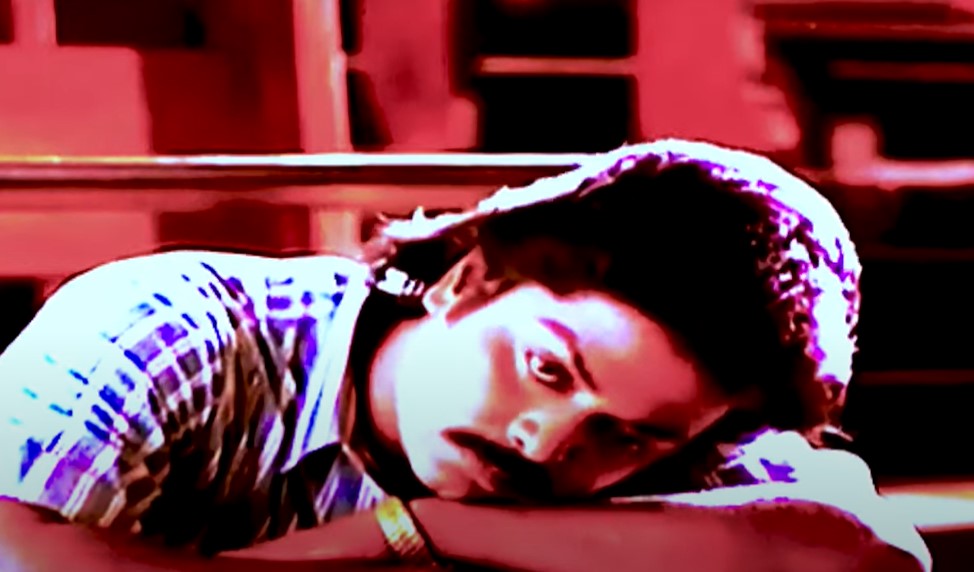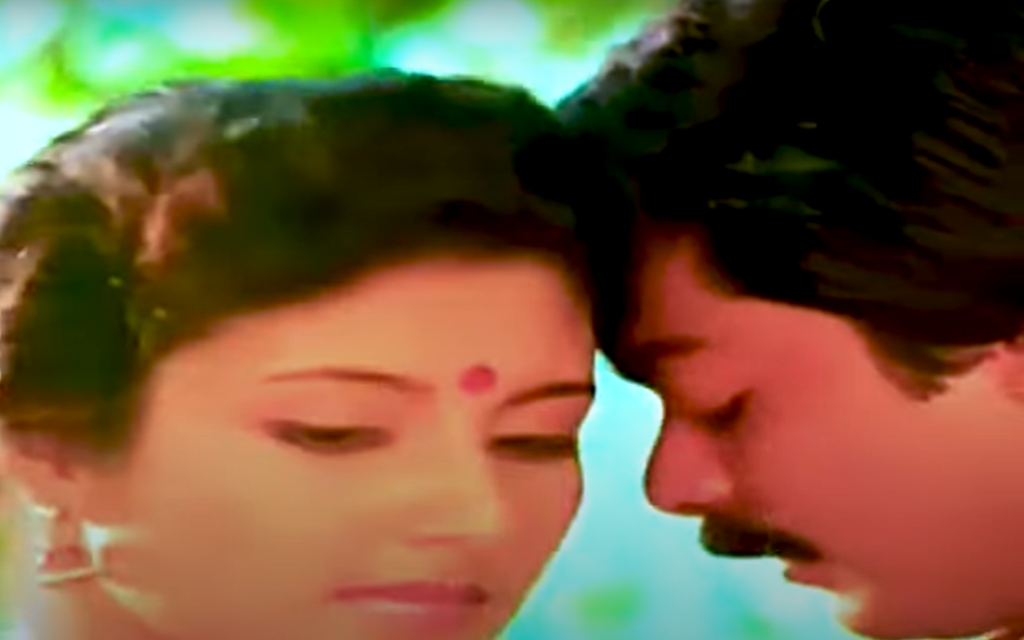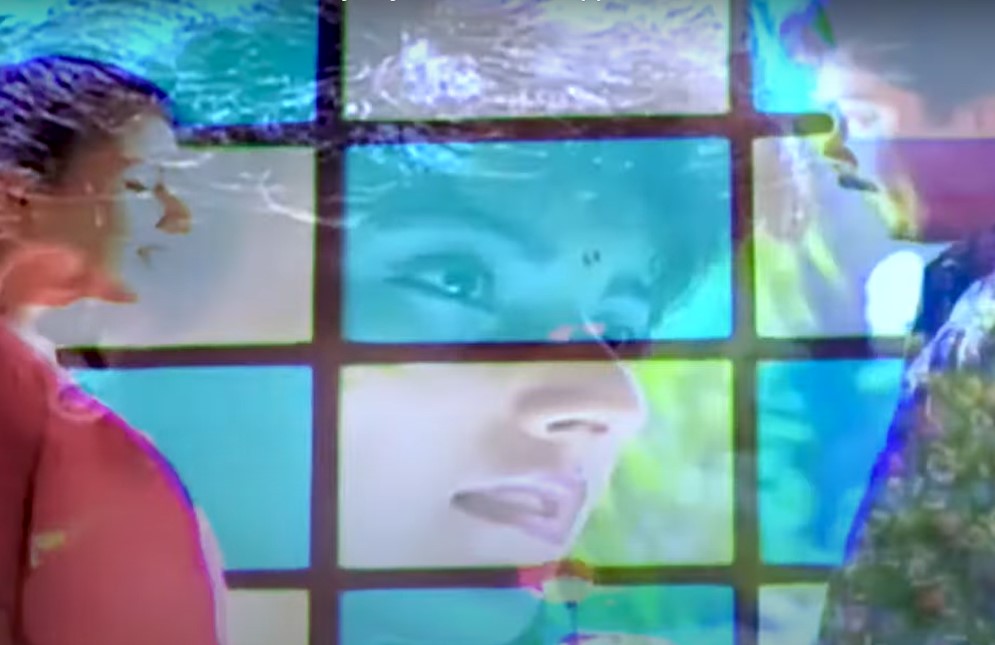Any serious work of art – be it cinema, literature, music or even painting – is a truthful reflection of the society from which it originates. A great work of art, though, transcends that societal relevance and tends to be eternal and timeless. But there are those rare creations that completely lose their relevance over time but still achieve greatness due to the honesty with which they immortalize an era that has gone by. Director Kathir’s debut film Idhayam (1991) is one such work of art.
When Idhayam was originally released thirty-three years ago, the movie hardly received any attention – there were no major stars, director was unknown, and the plot… well there was no real plot as such in the film. Yet, it turned out to be one of the biggest sleeper hits of the year and remains a classic among those who watched it as teenagers or 20-somethings. The movie also gave actor Murali a career-defining role and established Heera Rajagopal as a star in Tamil cinema.

If one has to summarize the plot of this film, it can be accomplished in just a few words: A young medical student falls in love with a classmate during the first year but does not reveal it to the girl until the end of their final year in college. The protagonist’s suppressed love almost gives him heart attack which is when the girl finds out about his obsession with her and decides to reciprocate. The movie opens at a medical college where Raja (Murali), a first-year student from a rural and humble background goes to study MBBS. At college he meets Geetha (Heera Rajagopal), daughter of a wealthy businessman and falls in love with her in as clichéd a manner possible.
It was an era when people wrote love letters by hand, bought greeting cards and wrote romantic verse in them but never had the courage to give it to their beloved. Young men stood for hours at bus stands and street corners to quietly watch a woman pass by, and would be in love with a woman for years without having a single conversation.
For the next four years, Raja pours out his love for Geetha only into his diary and with his friend and roommate, played by Chinni Jayanth, who is also his only companion in campus. Despite having numerous occasions to reveal his feelings for her, Raja is unable to do so due to his introverted nature and fear of facing rejection. When they reach the final year, Raja’s friends urge him to propose his love or forget her and move on with his career. He finally musters the courage to propose to Geetha but finds out that her sister has just committed suicide after their father refused to get her married with the man she was in love with. Raja backs off yet again continues to carry his love in his heart for some more time. Before the end of the course, he hands over his diary to Geetha filled with pages and pages of his love for her imbibed in words.
Yet to recover from the shocking suicide of her sibling, Geetha ignores the proposal and agrees to marry a man chosen by her father. Dejected and extremely stressed at the news of her proposed marriage with another man, Raja stages a play on the idea of love pouring his heart out and wins accolades but suffers a mild heart attack while enacting it during the college annual day. The rest of the movie is about whether Geetha has a change of heart and if Raja’s heart is strong enough to survive his first love.

Watching Idhayam after three decades did make this reviewer squeam in several scenes at the sheer lack of research and cliched dialogues and visualizations. For a younger audience, the movie is likely to be even more squeamish but the honesty with which the protagonist loves his woman and his intense passion for the kind of love that is hardly prevalent today, or for that matter even back then, makes Idhayam a memorable watch. That the movie turned out be a blockbuster shows that audience connected with storyline — finding a character like Raja in schools and colleges of the 90’s was so common. It was an era when people wrote love letters by hand, bought greeting cards and wrote romantic verse in them but never had the courage to give it to their beloved, young men stood for hours at bus stands and street corners to quietly watch a woman pass by, and would be in love with a woman for years without having a single conversation.
Of all the transformations that the smart phone has probably brought about, one of the most tragic — one could argue — is the way it has transformed romance. Forget Tinder, Bumble and the dozen-odd apps that are the reference point for modern romance, proposing to a woman hardly happens in person any more.
These days, nobody looks at anyone or anything except their mobile phones while walking on the roads or even in bus stops. Of all the transformations that the smart phone has probably brought about, one of the most tragic — one could argue — is the way it has transformed romance. Forget Tinder, Bumble and the dozen-odd apps that are the reference point for modern romance, proposing to a woman hardly happens in person any more. Most young women get at least a dozen proposals a year in their smart phones from both acquaintances and anonymous persons besides those ugly selfies in obscene clothes and angles from friends, co-workers etc. Love, these days is what has been depicted in the movie ‘Love Today’ by Pradeep Ranganthan (which has clearly made that movie a blockbuster).
If you’re a fan of ‘Love Today’, it might be a good idea to go back and watch Idhayam for the film might reveal a kind of love you probably never thought had existed. And if you’re a boomer (as kids now refer to middle-aged men and women), you can watch Idhayam again to see how irrelevant your idea of love has become. If not for anything else, watch it for maestro Illayarajaa’s soul-stirring background score and mesmerizing songs that have made the film immortal.


